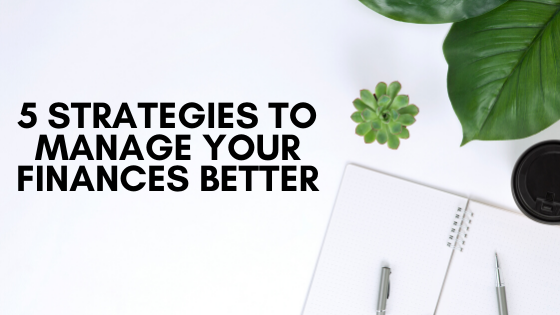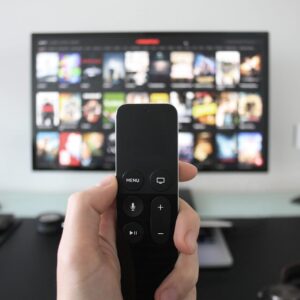This article may contain references to products or services from one or more of our advertisers or partners. We may receive compensation when you click on links to those products or services. Nonetheless, our opinions are our own.
The information presented in this article is accurate to the best of our knowledge at the time of publication. However, information is subject to change, and no guarantees are made about the continued accuracy or completeness of this content after its publication date.

Updated by Albert Fang
Are you tired of just making ends meet and not having enough to put some on your savings? It is true that life can be much easier if you have excellent financial skills, but it doesn’t really take rocket science to become financially wise. How you spend your money can have a huge impact on your credit scores and the amount of debt you put into your pocket.
If you’re struggling financially as of this moment, what you need is a beginner’s guide to frugal living — some useful, excellent, and simple tips to improve your financial habits. You don’t really have to live from paycheck to paycheck, especially when you realize that you’re making enough money.
The key to managing your finances better is using your budget and your balance to determine whether you can afford a purchase. Keep in mind that even if you have the money, it doesn’t necessarily mean that you should make a buy.
So, when you’re faced with a decision to spend, especially if it’s an expensive purchase decision, don’t always think that you can afford it. You have to first confirm with yourself if you can really afford it and you haven’t put your funds to something else. There are always recurring things to consider on a monthly basis like bills and other basic needs to pay.
In terms of budgeting, it would help you to determine how much money you have and you spend your funds — it is considered as one of the most essential tools in building a successful financial status because it helps you make the most out of your money.
Here’s a beginner’s guide to frugal living and manage your money better
1. Create a budget
There are a huge number of people who don’t budget their money because they often think that it’s a tedious process to list out their expenses, adding up numbers, and making sure that everything is lined up together.
If you think that you’re bad with money, then the more reason to not have excuses to budget. Creating a budget and sticking to it is essential and it pays off in the end. Budgeting may seem like a huge challenge at first, especially if you’re used to spending. It helps you see your true financial situation which is the number one factor for better managing your funds.
Budgeting is the first step to get you paying off some debt and to help you start saving for future expenses like purchasing a house, car, starting a family, and planning for retirement. It brings balance to your financial status and gives you peace of mind at the end of the day.
For you to begin creating a budget, you need to understand your expenses and the money that comes in to manage your funds.
2. Understand your expenses
Most people when asked don’t know how much they spend on a monthly basis and this isn’t rare. This is the main problem that people often deal with and they don’t really know that there’s an easy solution to it.
To solve this problem, you first need to track all your monthly expenses like taking your receipts may it be from the grocery, utilities, restaurants, and others — then take a look at your bank statements and add up all of your expenses. It is wise to keep track of your expenses whether you paid cash or used your credit card.
The idea here is to have all of your expenses accounted for to determine the total amount that you spend. This will let you see the whole picture to help you manage your expenses moving forward. You may also want to make a comparison of your historical expenses over time.
3. Understand your income
Everyone knows how much they make every month and this is the complete opposite of understanding your expenses. Most people have complete knowledge of how much they earn monthly but have less knowledge of how much they spend.
The point here is to figure out your complete expenses and subtract that from what you earn in a month. Here’s how the result should end up:
- If you end up with a negative amount, this means that you’re spending more than what you earn. What should you do? You should reduce your spending and expenses until you reach the amount of zero.
- If you end up with a positive amount, this means that you’re spending less than what you earn. What should you do? You could use the extra amount to pay for our debts or increase your savings.
4. Consolidate your debt
Debt is probably what everyone dreads — no one likes it. Most people who need managing money actually need help in getting out of debt. If you’re feeling the same with this, then most likely you need a way to solve this financial problem.
Did you know that there are millions of Americans that are $400 away from suffering financial hardships? This is according to a report from CNBC. Now, the first thing you need to do is get your debt under control and work on paying it off.
If you have credit card debts, student loans, and other debts loon into consolidating them by trying to get the lowest interest rate possible. This is about taking the right steps in controlling your money and there are available options that would allow you to combine all your unsecured debts into a single bill rather than paying them individually.
If you have a single credit card debt and you’re running on a pretty tight budget, you can at least pay for the minimum amount as soon your credit card bill sets in. If you’ve made extra money, try to make another payment after a few weeks. If you can try to keep on this kind of payment cycle, you can fully pay for your debts without realizing you’re free from it.
5. Remove unnecessary expenses and create an emergency fund
Spending on things like a Starbucks venti latte every day? Then that’s about $4.15 off your pocket. Think about it, if you multiply that amount in a year, it could be more than $1,500 spent on coffee. How about considering brewing your own blend at home and bringing some at work with you? You can save a lot!
How about doing your exercises at work instead of paying for a gym membership or yoga class monthly? Think about your other recurring subscriptions and account memberships you’re paying but can really live without.
Keep in mind that the idea here is learning how to manage your finances by considering everything — every single penny you earn counts. Once you’re getting ahead of removing unnecessary expenses, you can then start creating or saving for your emergency fund.
Let’s face it, there are some unexpected things that could happen and it’s always good to be prepared. Having an emergency fund is an essential part of living a good financial life.
At one point, if there’s no need to use your emergency fund, you shouldn’t use it and instead, let it sit in your account to earn some interest. Having this kind of fund will save you from cases like losing a job or your car breaking down, and then you know that you have a fund to get support from.
Now, one last important thing that you need to keep in mind is retirement. Most people would think that it’s way too early to be thinking about it. But the sooner you start saving for it, the better golden years you’ll have in the future. You should be able to establish your saving target to meet the retirement goals that would allow you to live a lifestyle you’d like when you get older. A secure future is a better future.
Conclusion
Having the right financial knowledge is the key to managing your money better. Another thing is about knowing what you need over what you want. Knowing where to draw the line can make a huge difference in creating a successful budget and preventing yourself from getting broke.
Stay well-informed about the changes in the market prices and always practice sound financial management decisions before making any expensive purchases. Being able to manage your money better allows you to have a life that is worry-free and it helps lower your stress levels.
Don’t be afraid to create your own budgeting system and start mapping out your personal financial strategy with having a goal in mind to manage your finances better than you did before. Perhaps, you can also share some of your effective hacks to others in need.
Commit yourself to stay within your budget until you see results. How about creating a monthly financial plan for starters until you can come up with an annual plan that you can stick to? You can expect to experience flaws in your plan but you can always modify it to better fit your earnings and expenses. Discipline is key and you’ll be surprised at how well you’ll handle your finances as each month goes by.

Reviewed and edited by Albert Fang.
See a typo or want to suggest an edit/revision to the content? Use the contact us form to provide feedback.
At FangWallet, we value editorial integrity and open collaboration in curating quality content for readers to enjoy. Much appreciated for the assist.
Did you like our article and find it insightful? We encourage sharing the article link with family and friends to benefit as well - better yet, sharing on social media. Thank you for the support! 🍉
Article Title: 5 Strategies to Manage Your Finances Better
https://fangwallet.com/2019/11/04/5-strategies-to-manage-your-finances-better/The FangWallet Promise
FangWallet is an editorially independent resource - founded on breaking down challenging financial concepts for anyone to understand since 2014. While we adhere to editorial integrity, note that this post may contain references to products from our partners.
The FangWallet promise is always to have your best interest in mind and be transparent and honest about the financial picture.
Become an Insider

Subscribe to get a free daily budget planner printable to help get your money on track!
Make passive money the right way. No spam.
Editorial Disclaimer: The editorial content on this page is not provided by any of the companies mentioned. The opinions expressed here are the author's alone.
The content of this website is for informational purposes only and does not represent investment advice, or an offer or solicitation to buy or sell any security, investment, or product. Investors are encouraged to do their own due diligence, and, if necessary, consult professional advising before making any investment decisions. Investing involves a high degree of risk, and financial losses may occur including the potential loss of principal.
Source Citation References:
+ Inspo












































